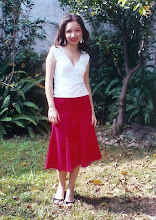
Essen.
Visited the industrial complex of Zollverein at Essen today (why? UNESCO World Heritage Site!). This is basically a coal mining shaft (shaft XII, to be precise) and its auxilliary complexes, including the coal track cart repair shop, coal sorters, steam boilers, etc. You can't go down the shaft, but most of the Bauhaus-style complex you can tour around with a guide, and the rest of the buildings have been converted into things like a restaurant, a museum housing the Red Dot Design Awards winners, a casino, etc. Essen is otherwise not particularly interesting, so I didn't spend much time there, but I do have a rather interesting/funny/curious little anecdote to tell that illustrates what I thought was a....peculiarity in the German "character":
I was buying the entrance ticket to the Red Dot Museum exhibit, when one of the two college-aged girls staffing the ticket counter saw my Lonely Planet Germany guide (yeah, I finally ditched the Let's Go after the Germany guide a friend kindly sent me to Poste Restante in Reims from the U.S. did not arrive in time for me to pick it up--sign from the Gods of course that I was finally released from my "penitence chain", so to speak, a la "The Mission" movie--remember the scene where Robert de Niro after much pain and suffering finally loses the heavy net of stones and armors he was carrying as penitence while climbing up a mountain? Yeah, it was kind of like that, but anyway....) and asked politely if she could borrow it for a second.
Naturally, I said "Of course!" and handed the book over, at which point she immediately turned to the index and started looking purposefully for something.
When I finished purchasing the ticket from the other girl at the ticket counter, I turned to check to see if she was done with the book, but seeing that she wasn't I just kind of hung patiently around by the counter, until suddenly, in seeing that her friend was still carefully leafing through the book, the girl I had just purchased my ticket from turned to me and asked me, if I would like to leave the book at the counter while I went and looked at the exhibit.
I was a bit puzzled at this, and thought that perhaps I had misheard or misunderstood my German, because the immediate reaction was to wonder, why would I want to leave my book here, unless it was forbidden for some reason to take it with me?
So I politely asked if she could repeat what she said.
There it was again. "Möchten Sie", "would you like to". I had not misheard. She clearly said, and then the first girl looked up from my book enthusiastically nodding and seconding the first girl: "Would you like to leave your book here while you take a look at the exhibit?"
I paused while I puzzled this out for a minute. And then it hit me. Of course! Got it! I then replied with a polite (and amused at the sudden comprehension!) smile: "Ja, natürlich! Ich werde gern mein Buch hier lassen. Vielen Dank!" ("Yes, of course! I'll be happy to leave my book here. Thank you!")
In my country, of course, the same intent from the girls would've been conveyed, instead, with a more direct:
"May I please borrow your book a little longer, while you visit the exhibit, perhaps?"
To which I would've again replied: "Of course! No worries. Take your time."
But I thought it was kind of interesting, that while in France they make sure to make you feel like it was their pleasure when they do you a favor, turning the tables on your asking them for something in such a charming way, here the tables were turned but in the opposite direction: the phrasing was such that it seemed intended to make it look like they were doing me the favor of keeping the book for me while I looked at the exhibit, instead of the other way around (surely everyone must know how one tends to loathe parting from one's posessions--books, in particular, for me--if even temporarily, so doing so is a bit of a minor sacrifice on one's part).
I have, of course, not been long enough in Germany to be able to generalize about such things, or to know whether this was just ackward phrasing from still relatively immature 20-year olds, or whether it was just a peculiarity of the language and an ackward mistranslation (though the "Möchten Sie", I'm positive, was there. Twice) or whether there is a certain, shall we say...reluctance to directly ask for favors or help here. Perhaps the customs are such that one simply offers their help when it appears that someone could use it, and directly asking for it is impolite. Perhaps, it was I who should've offered to leave the book, upon seeing that the girl was not done with it, according to local customs. I don't know. Perhaps some of the Germans on the board can comment (Ralf or Torsten, care to give it a shot?), but the point is, it was a bit curious, and funny, and unexpected, and something to keep fresh in mind, for comparison and experience purposes.
Anyway, later in the afternoon as I was waiting for the train back to Köln I popped over to the Alte Synagoge in downtown Essen, which is I believe one of the largest (if not actually the largest) pre-war synagogues preserved in Germany. The synagogue was hosting an exhibit on Jewish life before the war, which I really wanted to see, but unfortunately I was a bit put off the exhibit by what appeared to be some rather...uh...biassed...descriptions of the displays. Here's an example (textual quote):
"The centuries old Christian anti-Judaism advanced in both the conscious and subconscious has easily evolved and transformed into hatred against the Jews."
or another:
"Christian anti-Judaism is based upon passages in the New Testament and it is incorporated in the writings of Church Fathers."
And no, my friends, this is not language mistranslation because:
1. The English I am quoting is word for word textual from the exhibit display letterings, and
2. The German is just as bad (if you want the word for word text so you can compare, just go ahead and email me and I'll send you the quote).
As if this "Jewish hatred" was intrinsically a Christian thing (because no other group has ever exhibited anti-Semitism before or since, right?). Or as if being Christian pre-disposed you to this kind of hatred. Or as if it were a characteristic intrinsic in Christian teachings.
They were surprising and obnoxious statements I did not expect. How disappointing. And how sad, too, that in trying to illustrate something about Jewish life and culture, by generously opening up an important worship place like a Synagogue to visitors (including those of other faiths), that is, in trying to erradicate ignorance and misinformation, showed a clear ignorance and effectively disseminated misinformation on the culture and teachings and customs of the group they were accusing of this hatred. For any flavor of Christian will tell you (be they Catholic, Protestant, or whatever, it doesn't matter, they all agree on this one) that any kind of "hatred" goes against the whole point of the Christian message, and the problem is, a non-Christian visitor to this exhibit, if not knowing this, may come to...shall we say...."inaccurate" (to put it mildly, for "dangerous" could've been a word that would've served just as well here) conclusions about Christians as well.
This kind of carelessness rather ruined things for me and made me from then on (the quotes above come within the first one or two displays, so the effect is immediate) take on a very highly skeptical demeanor at the rest of the exhibit, an added effect, surely, that the creators of the exhibit most likely did not intend.
Perhaps one day, especially when dealing with such sensitive issues, we may try to be a bit more careful, so as not to induce in the ones we're trying to communicate things to, the exact opposite reaction and resistance to understanding that we are most desperately trying to convey and repair.
:|

1 comment:
Hahahah! If it were me, I'd be worried about the book for the entire exhibit! I really don't like lending stuff to people, books especially. It just kills me when someone returns my book with some page corners accidentally folded. :)
Post a Comment